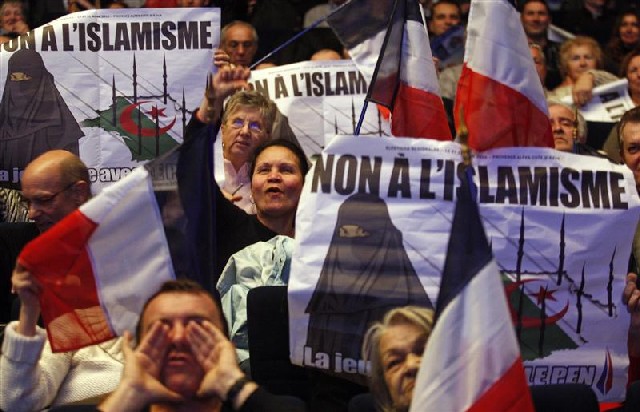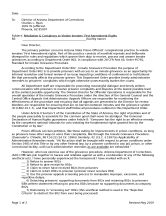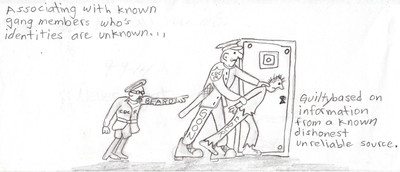
Baltimore: Contradictions Heightening
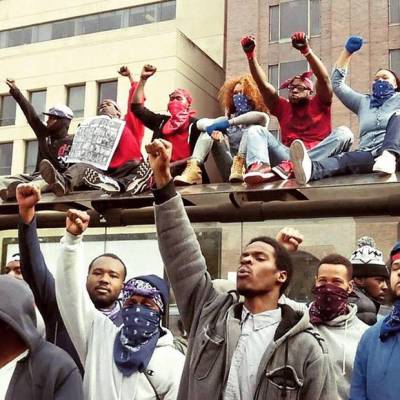
Another issue that we have reported on over the years has been that of police brutality, and in particular police killings. In recent years, this too has emerged as a flashpoint issue. After many incidents that provoked local and ongoing responses, Ferguson took it to another level, and now Baltimore has further pushed the issue and begun to draw lines in the sand.
Just as the state attacked the anti-SHU movement for being a bunch of gangbangers just looking out for themselves, the question of oppressed nation unity across lumpen organizations has come to the forefront in Ferguson and Baltimore. In Baltimore, the Nation of Islam held a press conference with members of Blood and Crip organizations that led to a lot of press coverage. During the uprising, those organizations were on the streets protecting New Afrikan-owned businesses and community members. As they attempted to show their ability to do for their community what the police claimed but failed to do, the state tried to paint them as a bunch of cop killers in the media.
A controversial hypothesis that we have put forth is that we should look to the oppressed nation lumpen and lumpen organizations to find a mass base for revolutionary organizing in the United $tates. We see the social forces involved in the struggles against long-term isolation and police killing as providing evidence in support of this hypothesis. We have looked at this question in depth and think there is enough evidence to support this as a valid scientific theory. One source of confirmation we get from this is the support we get from the oppressed nation lumpen. One comrade from Baltimore wrote to us further illuminating the connection between our prison work and the anti-police movement today:
“I am a former eminent member of the 5-Deuce Hoover Crips in the Northeast region of Baltimore city. Currently, I am serving out a long prison sentence in Maryland. I am writing to you in regards to the riots and the looting and the unorganized protest that took place 27 April 2015. I can’t say that I’m surprised, nor can I say I seen it coming; but you must know that if the melee on April 27 didn’t happen when it did, it still would have taken place somewhere further down the line. Do I condone the actions of misled, poorly-educated youth and mindless adults during the date of Freddie Gray’s burial? No, I do not!
“I knew Freddie personally so know his death is agonizing and he’ll be missed. It is such a crying shame it took the misplaced anger and rage of Baltimore’s youth to get the governor, mayor, city’s councilpeople, etc. off their hindparts to ‘work actively’ with the protestors and conduct an investigation of Freddie Gray’s death. Every big shot wants to say how good of a city Baltimore is, yet the justice system is corrupt, and our ‘city leaders’ are corrupt…
“There is good in Balti but those ghettos around the realm of the city are truculent. Not because there’s direct destruction, but because right now it is the blind leading the blind. Those same misled youth who rioted April 27 will soon grow to be adults who will be misleading the next generation. Baltimore city needs help, in its ghettos and its prisons. In short, legislation has to make some changes with its shielding of police who break the law and violate the rights of the civilians.”
Certainly there is much to be done in all areas where there is mass opposition to police brutality. And we do not see any possible solution from a state whose interests the police are serving. The struggle to transform spontaneous uprisings into long-term organizing is one that the movement has faced for decades. The increase in frequency and size of such uprisings is the quantitative change in this contradiction between the oppressed nations and the imperialist state. The transformation from spontaneous to organized, concerted movements is the qualitative change that must happen to keep the struggle advancing. And the lumpen organizations themselves must transform in order to play an effective leadership role in that process.
Some in the oppressed nations are frustrated with the slow pace of change. No doubt there have been a lot of peace treaties and calls from lumpen organizations to be forces for the community that have not always panned out to be all that we had hoped for. But just as there were countless uprisings to overthrow slavery before enough quantitative change had occurred in society to be successful, we are now in a stage where we see many efforts to form national unity in New Afrika and to politicize lumpen organizations. These efforts are part of the quantitative change that has not yet made a qualitative leap to a new stage of struggle. This is a process that faces setbacks from state interference, but also responds to state interference with further radicalization and mobilization.
Another sign that the movement is advancing is that lines are being drawn between enemies and friends. It is becoming clear that many who claim to oppose racism and police brutality actually care more about private property and business as usual. So the progressive facade of these forces is being torn off as they come face-to-face with the unrefined reality of mass uprisings. But just as those false friends become alienated from the struggle against police killings, the masses who have a real interest in change will become energized by a movement as it becomes more real and relatable.
Becoming more real requires having an analysis of the situation that is based in materialism; that is real. The more our analysis reflects reality and is able to harness the forces of change that are present, the more support we will gain from those forces of change. Many people are still stuck in metaphysical ways of thinking. They think this is just the way things are and they will never change. Such people conclude that the best thing to do is to try to avoid conflict with the oppressor, keep your head down and just try to get by.
The dominant Amerikan analysis is also metaphysical and misleads the masses who might otherwise be supportive of dialectical materialist analysis. Racism is a metaphysical view of sociology. Using an individualist approach to sociological questions, or replacing psychology for sociology, is also metaphysical. Sociology studies groups of humyns and can be used to predict how they will behave; psychology studies individual humyns and attempts to predict how they will behave. The metaphysical line goes that there are bad cops and there are bad people who go to the protests. These bad people must be rooted out and punished. As sociologists, we disagree, as this does not address the source of the conflict.
The racist version is that these looters are thugs who have nothing to do with Gray. If we look at history, these types of occurrences in similar communities in the United $tates are almost always in the response to the killing of New Afrikans by the U.$. state. This would lead the scientific mind to develop a hypothesis that there is some connection between the two. To test this hypothesis we could search history for incidents when large groups of people loot stores when there wasn’t a New Afrikan killed. If we find few-to-no examples of this, and find many examples of the first situation, we might raise our hypothesis to a theory, that can be used as a predictive tool.
In contrast, Amerikans say the people in Baltimore who looted stores are opportunists, using the protests as an excuse to act out their real goals. Like getting some free Doritos is a higher priority for them than getting justice for the countless New Afrikans who have faced abuse and murder under Amerikan occupation. Such a nihilistic view is almost laughable. But let’s entertain it a little further. If we are to oppose this position, we should propose a better explanation for the behavior of many of the youth in Baltimore recently. As our comrade wrote, it is a blind leading the blind problem, but why is that? Are New Afrikans just not smart enough to figure out how to respond effectively? He further wrote:
“I am a 25 year old Black man who taught myself how to read while incarcerated. After being sent to prison a third time I learned my true calling. There’s so much more to life, I am trying my hardest to be an activist behind the prison walls and when I make it out on the streets. I know first hand how it feels to be those Black children who’ve been mis-educated and unheard, so the only way to express your emotions is through lashing out because you don’t know any other way. The police used to beat and harass me every single day because of my position in the Crips, because I wasn’t properly educated, and because they had the power. I’m no saint, but a lot of things I went through and/or other Black children endured with police brutality often times was uncalled for.
“If the shoe was on the other foot and someone killed a police officer, there wouldn’t be a waiting period or an investigation to lock the person up. The police might even go as far as persecution (execution style) of the person themselves. The video clips taken during the occurrence of Freddie Gray’s death should render enough information for all of those cops involved to be taken into custody (without bail) until a trial date is arranged.”
Let’s analyze this a little further. We live in a capitalist society, where the primary motivator that keeps things moving is profit. Our country is an imperialist country, that has always used force to kill and steal from people to increase its wealth. When New Afrikans walk around with $ signs hanging from their necks, and big portraits of Benjamin Franklin on the back of their jeans, is there any doubt that they are reflecting the dominant ideology of capitalism? On the other hand, whenever a New Afrikan movement has arisen that promotes socialism, communism, cooperative economics or anything of the sort, they have faced repression. People who led New Afrikan youth against capitalism have been imprisoned and killed. Could these be explanations of why New Afrikan youth today are often caught up in fetishizing money and wealth? Because they’ve been terrorized into it? The individualist will pretend these things don’t matter and that it’s up to the individual to make the right decisions, even when the individual does not have all the information or knowledge they would need to do so because that information has been purposely and systematically kept from them. It amounts to blaming the victim.
Of course, a real Amerikan patriot supports the First Amendment, so they will say “I support the protesters, but I oppose the looters.” The petty bourgeois class interest is not hard to see in this dominant narrative. People are literally putting more weight on private property than a New Afrikan’s life. They might respond, that to put it such a way is a false dichotomy, because it was not a situation where we either break some windows and save Gray’s life or let Gray die at the hands of police. But this again is based on their individualist worldview. In their view, each incident is unique and isolated between the individuals involved and must be assessed as such. There is no consideration of the possibility of the mass uprising in Baltimore leading to a surge in organizing, that then contributes to a new revolutionary movement that 30 years from now has put an end to imperialism in this country so that New Afrikans’ lives are no longer threatened by police.
The more we look at the big picture, the worse things are for the
defenders of capitalism. When we look at the big picture we see things
like 80% of the world’s people have a material interest opposed to
capitalism because their basic needs are not being met. And that
capitalism has only been around for a few hundred years, a blip on the
timeline of humyn history. And that all systems change, all empires
fall. This constant change is a part of the dialectical worldview.
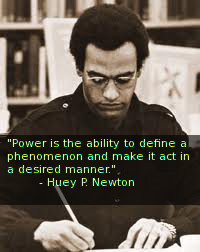
This is why Mao talked about science being on the side of the
oppressed. Injustice is an objective fact. And the solutions to the
problems our society faces today are found in a thorough analysis of
that society.
We commend our comrade from Baltimore for taking the journey of teaching himself to become an activist to serve the people. But how does one go about learning in an effective way? There is so much information out there, so many books and groups and so little time. Making effective use of the collective knowledge of humynkind requires using the correct scientific methods, and comparing different practices to see which ones have worked. We hope this issue of ULK gives our readers some guidance in this process of judging truth and knowledge. As always, we have study materials that go more deeply into this than we can here in ULK where we try to focus on news and agitation. Issue 45 of ULK will focus on the practical side of how to organize study groups in prison, and the question of how do we teach basic skills like literacy. We hope those of you with experience will contribute to that issue and help build the quantitative change that must come from the oppressed masses themselves for any systematic change to take place.









